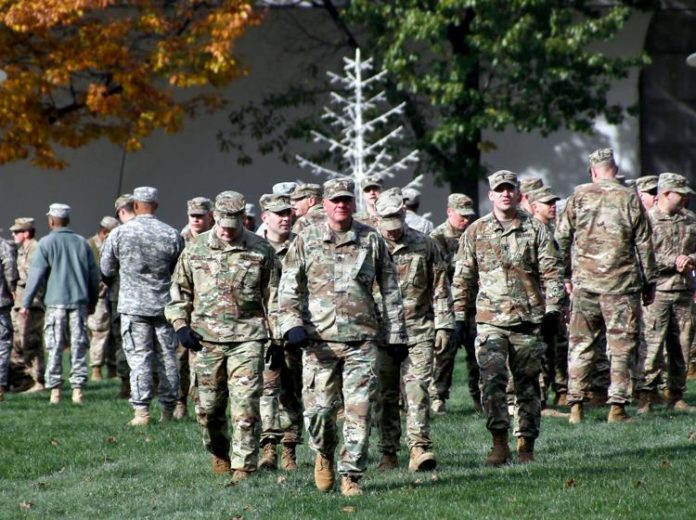
Congress passed a $770 billion defense bill Wednesday, authorizing a wide range of military spending for the next year.
The Senate passed the bipartisan 2022 National Defense Authorization Act with an 89-10 vote, sending the legislation to President Joe Biden. The bill, which is passed annually in some form, includes a revamp of how the military deals with sexual assaults as well as a 2.7% pay increase for military members and employees at the Department of Defense.
The bill also creates an “Afghanistan War Commission” to evaluate the U.S. military’s presence – and withdrawal from – that nation.
“The passage of this year’s national defense bill bolsters our security, ensures our nation’s defenders can effectively confront adversaries like Communist China and Russia, and directly benefits Tennessee’s military and research communities,” said Rep. Marsha Blackburn, R-Tenn.
The NDAA came after months of wrangling over the debt ceiling, funding for the government, and the infrastructure and “Build Back Better” spending bills. The legislation, which Biden is expected to sign, funds the gamut of military activity, from new equipment to salaries and more.
The bill faced several points of contention, including when a contingent of Republicans fought to include language protecting U.S. service members who refuse to take the COVID vaccine.
The head of the Department of Defense, Lloyd Austin, announced earlier this year that service members who refuse the vaccine will likely face discharge. After Republican efforts, the newly passed NDAA prevents them from receiving dishonorable discharges, but they can still be discharged.
“In addition, this year’s NDAA includes a provision I fought for that removes the ability for the military to dishonorably discharge service members who choose not to receive the COVID-19 vaccine,” Sen. Ted Cruz, R-Texas, said in a statement. “As President Biden’s unlawful vaccine mandates are continually challenged, this reform prevents our brave servicemen and women from being punished like convicted criminals for simply making what they believe is the best medical decision for themselves,” he said.
“I will continue to fight to ensure that service members who refuse the vaccine are not punished for their private healthcare choices,” Cruz added.
A spokeswoman for the Air Force said Monday the branch had discharged 27 service members, reportedly for refusing the COVID vaccine. These discharges are the first with more expected. The Biden administration has defended the mandate for service members, arguing only a small percentage have refused.
“My understanding is that 99 percent of the Air Force is in compliance. So, we’re talking about less than 1 percent, which – to us, the story is that it’s more than 99 percent who are in compliance,” White House Press Secretary Jen Psaki told reporters Tuesday. “I would also note – and they can give you more detail on this – but this is at the end of months of counseling and engagement with those not in compliance about what is required here.”
Another controversial provision that did not make the final version of the bill was an effort to include women in selective service, otherwise known as the draft.
“Democrats tried to use the NDAA to draft America’s daughters and force their radical social ideologies onto our troops,” Sen. Tom Cotton, R-Ark., said in a statement. “Thankfully, they failed, and this year’s defense bill largely does what it should: support and strengthen our troops.”
Republished with the permission of The Center Square.














